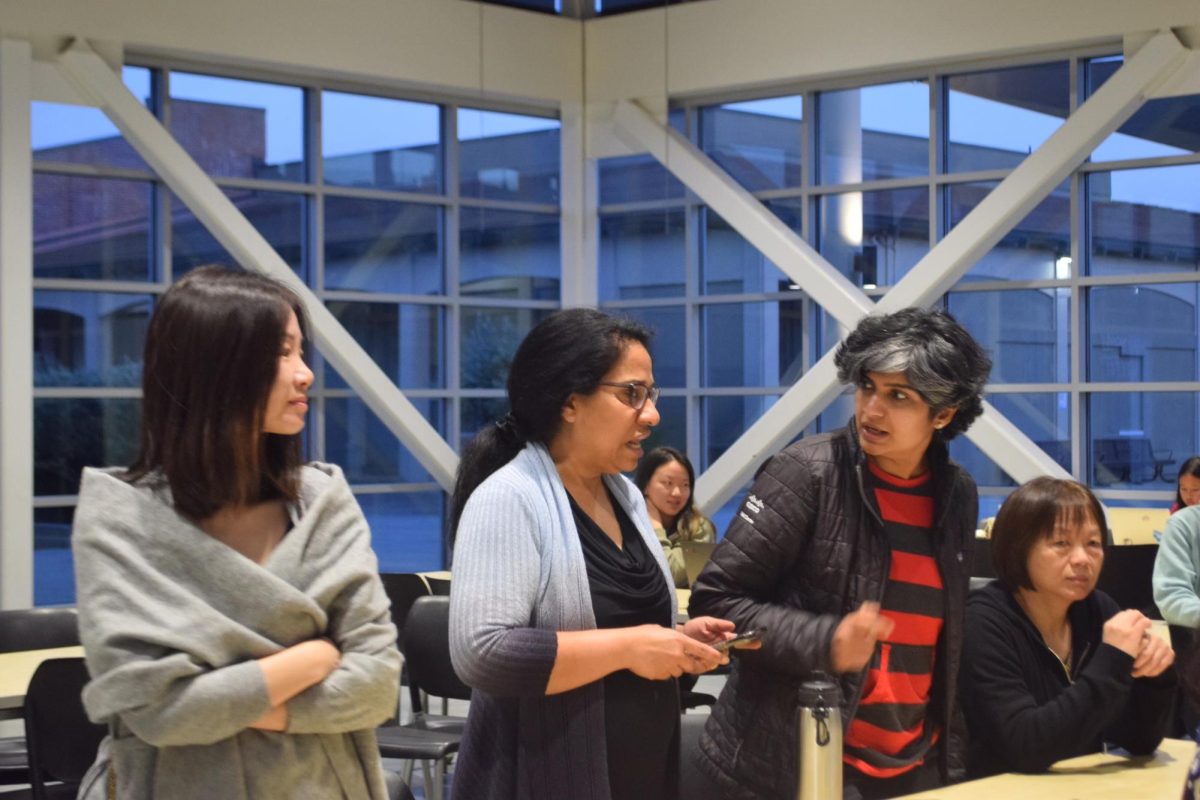“I regretfully have to let you know my pronouns are on this list.”
As English teacher Mark Carpenter, who uses they/them pronouns, glances through a list of words compiled by The New York Times the Trump administration is discouraging in the federal government, they are shocked by the absurdity of it.

The move is largely part of President Donald Trump’s initiatives to rid the government of “wokeism” and diversity, equity and inclusion policies. While there have been no official bans imposed on words, the Trump administration has used a combination of government memos, agency guidance and other documents to order their removal from federal documents, websites, school curricula and even email sign offs. These restrictions flag grant proposals and contracts which contradict with Trump’s executive orders, allowing them to be rewritten, edited and deleted from public view. Additionally, the administration has allowed federal agencies to follow the executive orders as they see fit, as long as they comply with the “two sexes” and DEI program elimination policies from Executive Orders 14168 and 14151, respectively.
Carpenter describes Trump’s action as “textbook Orwellian,” drawing parallels between it and the concept of newspeak in George Orwell’s “1984,” a book taught in the World Studies curriculum. The book’s dystopian government uses newspeak, a fictional language created through the elimination, substitution and alteration of certain words to suppress and control society.
“Orwell’s idea is replicated in our understanding of psychology, in that the words you use to describe something define the way you think about it,” Carpenter said. “So if you limit the number of words, if you limit the range of words that are used to describe things, you limit the range of thought of the people using that language.”
Carpenter also points out similarities between the book’s main character’s job of rewriting old newspapers to align with the government’s new ideals, and the task that befell many Pentagon workers on Feb. 26 to go through Pentagon documents and remove any DEI-related content. As a result of this mass purge, over 26,000 posts and images have been deleted from public view, many of which featured the accomplishments of women or minorities. One of these such images, which Carpenter highlights, was of the Enola Gay aircraft, mistakenly flagged for being DEI-related due to the word “gay” in its name.
“That was a high profile example of something that was erased,” Carpenter said. “I wonder what are the low profile things that people won’t notice that they’re erased until they look for it, or that nobody’s going to look for again and are just gone from archives.”
In addition to Pentagon documents, the word restrictions have also led to removal of data from the Centers for Disease Control and Prevention’s website. Information relating to nonbinary and transgender people, including lessons on creating supportive school environments for them, were taken down, and although a federal judge ordered the CDC to restore the websites two weeks later, the pages included disclaimers stating the administration “rejects” the information.
Carpenter takes some comfort in the belief that it would be impossible to completely erase the information, since it existed online with a digital footprint. However, History teacher Hilary Barron remains concerned that the inaccessibility of such data online will result in society losing awareness of it.
“We might lose some of the highlights of history that people should know about and should be made aware of,” Barron said. “I mean, I think people can get that information from other sources, hopefully through their education, but maybe not, right? It is concerning that we’re siding on the side of censorship and taking away information, versus just giving that information and trusting people to think critically about the information that they’re seeing.”
 As these restrictions are limited to the federal government and do not directly impact state governments, which control schools, Carpenter believes they will not be imposed on education anytime soon. On the other hand, Barron argues that there have already been many instances of educational censorship across the country, with students in different states often learning different versions of the same historical events.
As these restrictions are limited to the federal government and do not directly impact state governments, which control schools, Carpenter believes they will not be imposed on education anytime soon. On the other hand, Barron argues that there have already been many instances of educational censorship across the country, with students in different states often learning different versions of the same historical events.
Recently, Barron has been speaking to her students about the fundamental argument of order versus freedom — whether governments should prioritize peoples’ freedom of choice or stability and uniformity — in her government classes. Noting how different political parties often support different sides of social issues like gender expression, Barron believes much of the sensitivity around the restricted words stems from the government’s fear or feeling threatened by differing viewpoints.
However, senior and Politics Club co-president Kaveen Goswami believes that it is not the job of the government to censor or restrict ideas, and it should instead be up to individuals to decide what they want to see. Goswami recalls his efforts with Politics Clubs co-officers to educate students on political issues through unbiased, factual presentations, helping students become more aware of governmental actions and form their own opinions.
“As an administration representing the American people, you have to allow for concepts that are politically sensitive — that’s part of the job,” Goswami said. “Especially if you’re making policies about a lot of these things that are being banned, it’s not fair to the American people to censor these words and make it more complicated for the sake of avoiding politically sensitive topics.”
 Barron adds that the slew of executive orders, censorship and removal of governmental programs especially add a sense of fear and instability for federal workers across the country. She recalls a conversation she had at a recent history educator’s conference with a presenter who worked at one of the presidential libraries and who wasn’t sure if they would even have a job the following week.
Barron adds that the slew of executive orders, censorship and removal of governmental programs especially add a sense of fear and instability for federal workers across the country. She recalls a conversation she had at a recent history educator’s conference with a presenter who worked at one of the presidential libraries and who wasn’t sure if they would even have a job the following week.
“There’s all of this fuzziness and uncertainty, and I think that spreads fear,” Barron said. “There are so many things that are now censored from our government interactions — how can they not have any federal documents that say the word sex or race? What happens to me if I make a mistake? People are scared for their jobs. In one sense, I think it is going to be really discouraging, but it all depends on how people respond to it and how much it gets followed through on. Hopefully, people will continue to fight for equality and inclusiveness.”
Carpenter and Goswami echo Barron’s hope, with Carpenter calling for increased discussions and awareness to combat the restrictions. Goswami adds that due to the universality and necessity of many of the words in everyday speech or government documents, it will be difficult to enforce the restrictions, especially as the views of the President are not necessarily reflected in governmental employees or the general American public.
“People are gonna find a way around the restrictions,” Goswami said. “The American people aren’t stupid, they’ll be able to understand what you say, even without these words. I just think it’s ridiculous for the government to do things that so blatantly hurt the American people — keeping that data on the government website, it’s not hurting anyone.”










